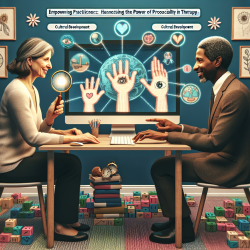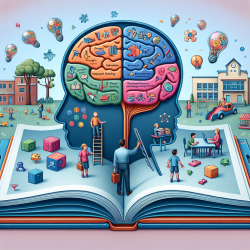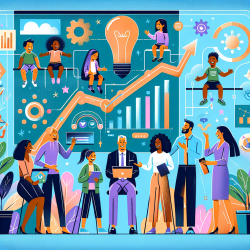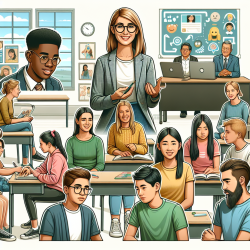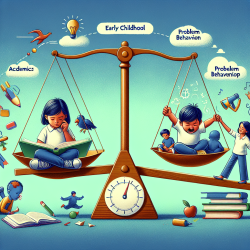Introduction
In the field of speech-language pathology, understanding the social dynamics that influence communication is crucial. Recent research on human prosociality, particularly the study titled "The origins of human prosociality: Cultural group selection in the workplace and the laboratory," offers valuable insights that can be applied to therapeutic practices. This blog explores how practitioners can leverage these findings to improve therapy outcomes for children.
Understanding Prosociality and Cultural Group Selection
The research highlights the concept of cultural group selection (CGS), which suggests that human prosocial behavior has evolved through group-level selection of cultural norms. This theory posits that environments with higher competition foster greater trust and cooperation among individuals. In therapy settings, understanding these dynamics can help practitioners create more effective interventions.
Applying Prosociality in Therapy
For practitioners, the implications of this research are profound. Here are some strategies to incorporate these insights into your practice:
- Create a Competitive Yet Supportive Environment: Encourage healthy competition among children in group therapy sessions. This can be achieved through games or activities that require teamwork and collaboration, fostering trust and cooperation.
- Focus on Group Norms: Establish clear group norms that promote prosocial behavior. Encourage children to support each other and celebrate group achievements, reinforcing the benefits of cooperative behavior.
- Model Trustworthy Behavior: As a practitioner, model trust and cooperation. Children often emulate adult behaviors, so demonstrating prosocial actions can encourage similar behaviors in children.
Encouraging Further Research
While the current research provides a strong foundation, there is always room for further exploration. Practitioners are encouraged to conduct their own research or collaborate with academic institutions to explore the impact of prosociality in therapy settings. This can lead to more tailored and effective interventions for children.
Conclusion
Integrating the principles of prosociality and cultural group selection into therapy practices can significantly enhance outcomes for children. By fostering environments that encourage trust and cooperation, practitioners can help children develop essential social skills that will benefit them throughout their lives.
To read the original research paper, please follow this link: The origins of human prosociality: Cultural group selection in the workplace and the laboratory.
